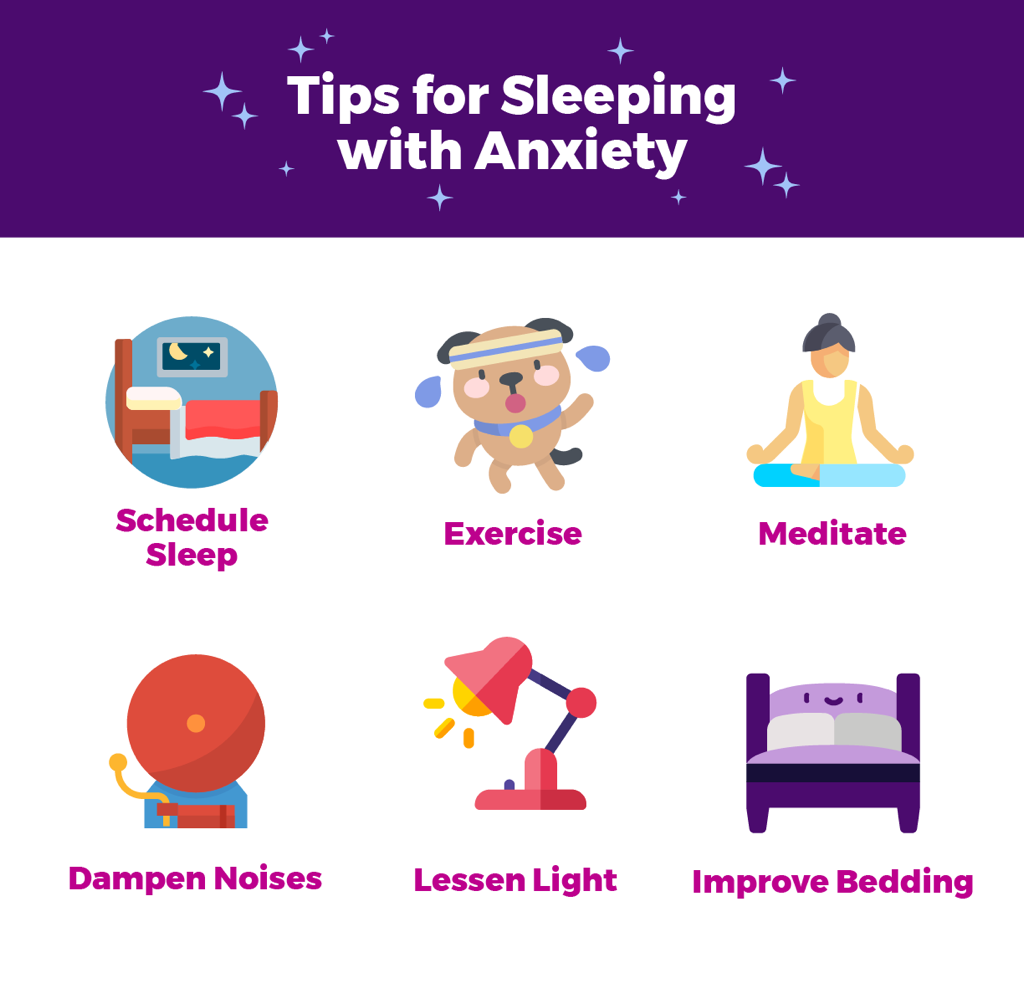Is Poor Sleep Making You More Anxious?
Anxiety and sleep are connected: When we sleep less, we can feel more anxious. And when we feel anxious, it's harder to sleep. This cycle can be tough to break—and the consequences can be devastating. Insomnia can cripple school and work performance. When you don't get enough sleep, you have a higher risk of developing high blood pressure and heart disease, and may even be at a higher risk of some forms of cancer.
If you're struggling to fall asleep, or to sleep through the night, consider making some changes to your sleep hygiene. These are your nightly pre-sleep rituals and habits. Good sleep hygiene gives you a better chance for that refreshing night of sleep that makes you feel less anxious in the morning.
Keep a Tight Sleep Schedule: Sleep, like any habit, is highly sensitive to change. A consistent schedule sends strong signals to your brain about when it’s time to sleep and wake.
Exercise Regularly: Exercise is as good for your mind as it is for your body. Plan your exercise regimen for morning or afternoon. Give your body time to come down and soak in the relaxing effects of physical exercise.
Meditate: Mindfulness meditation brings your attention to the present experience by eliminating thoughts about the past and future. Since the past and future are the subject of most worries, mindfulness helps eliminate those anxiety-producing thoughts.
Dampen Distracting Noises: Sounds slightly above a whisper can disrupt our sleep. With sleep disruptors this quiet, you may not even know they’re affecting you. Try earplugs for a week and see if you notice a difference.
Turn Off Bad Lighting: The blue light of computer, tablet, and cell phone screens can make our minds think it's still light out. Avoid them before bed.
Get a Mattress and Pillow That Fits You: Pressure points build on our body while we sleep, and can cause pain that wakes us up. Change your mattress or pillow if you feel discomfort during the night.
For more helpful information, visit this guide to better sleep for people with anxiety.
Guest Post by Alyssa Eniss


 RSS Feed
RSS Feed